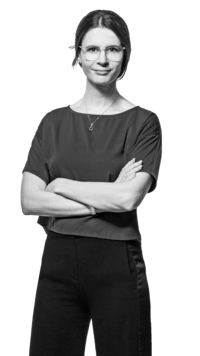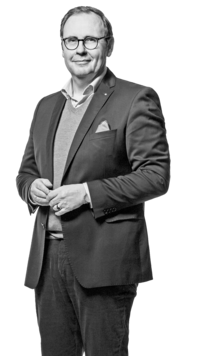Workshop in Basel together with the Canton Basel-City and swisspeace
Smart, Inclusive and Green cities for peaceful and secure European societies.
The fifth station of our Re-Building Europe journey has taken place in Basel on the 28th and 29th of August regarding the topic of Smart, Inclusive and Green cities for peaceful and secure European societies. Along with our host Canton Basel-City and swisspeace and an exclusive group of 28 guests joined the vibrant discussions and workshops on the various topics.
On the 28th of August
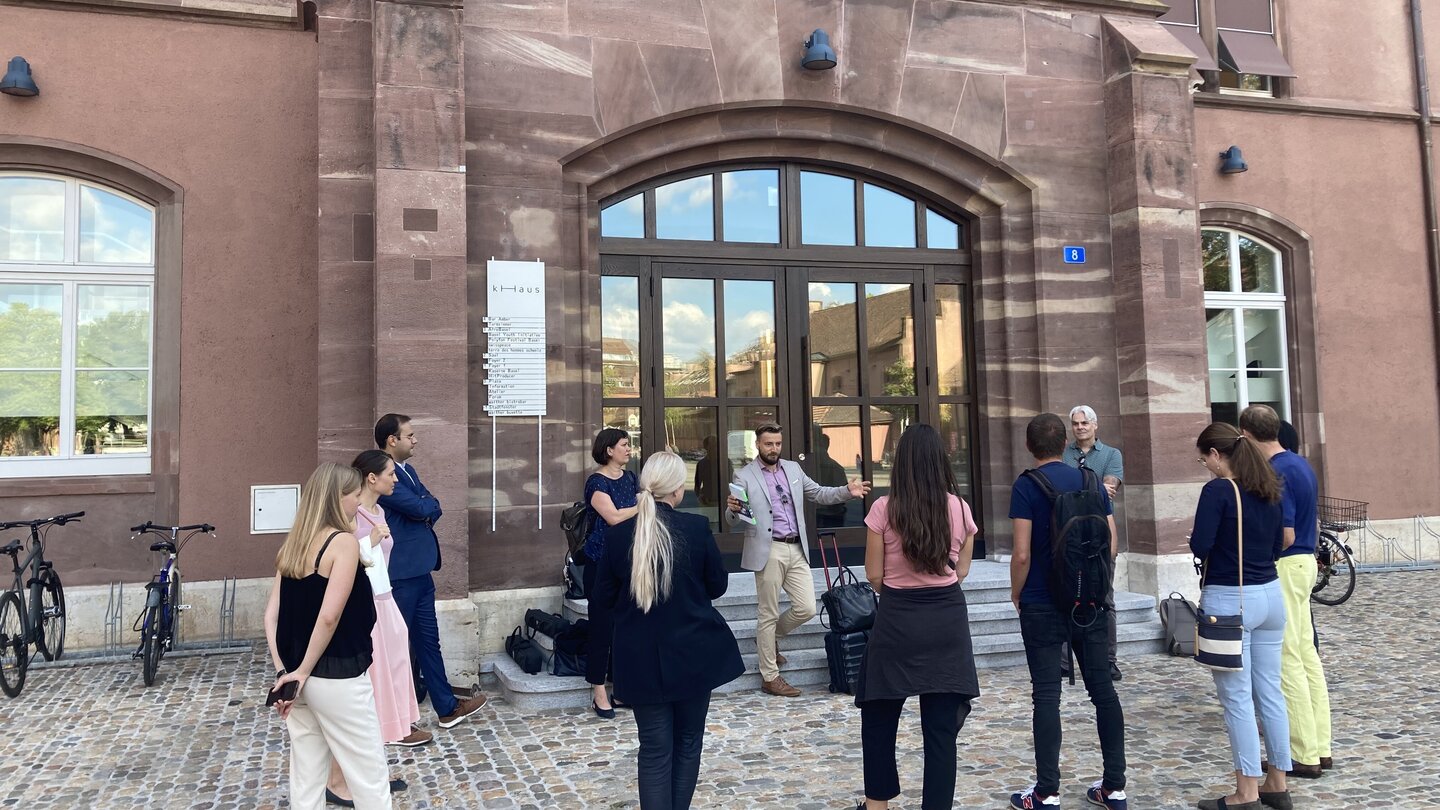
On this day, Canton Basel-City (Lukas Ott, Head of Urban Development Basel at Canton Basel-City) opened his gates and welcomed our group to start the evening at the kHaus from where we started our site tour. Dr. Haris Piplas (Co-director Integrated Urban Solutions at Drees & Sommer) and Lukas Ott gave us an exciting tour with many insights into the Klybeckareal, the City and the cityscape, as well as the conversion of existing industrial buildings into living space. At the end of the tour near the border triangle we finished the evening to enjoy aperitifs with exciting conversations
On the 29th of August
On the next day, Canton Basel-City and swisspeace welcomed our group again at the kHaus in Basel. After a short introduction of the Re-Building Europe initiative to the participants, the day opened with two impulses by Elias Schäfer (Co-managing director of schaefer | Hansen at Smart Regio Basel) and Dr. Haris Piplas (Co-director Integrated Urban Solutions at Drees & Sommer).
Impuls: Elias Schäfer
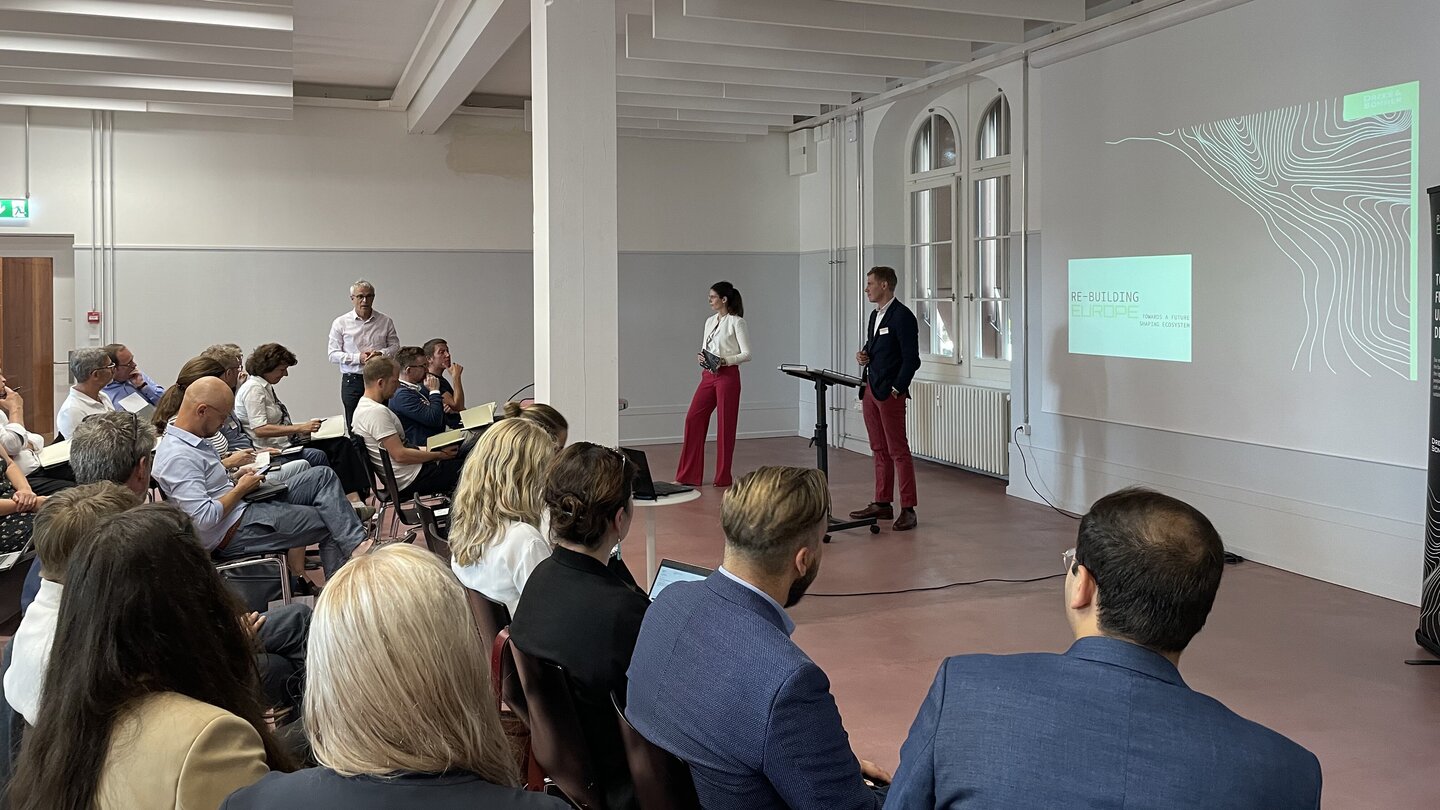
We started with an impulse from Elias Schäfer. He introduced the building and the old barracks to us providing insights on how cultural aspects are included and the innovative approach to development. The kHaus promotes exchange, synergies, interaction and encounters - within the building with our users, organisers and visitors, but also on the premises, in the lively neighbourhood, with neighbours and interested parties in the city and beyond. The area has become a well-known cultural and important living centre in Basel. By means of a new use, a contemporary, open and lively cultural and neighbourhood meeting centre is to be created, which will have a long-term positive impact on the barracks area, the surrounding neighbourhoods and the city through the projects realised in it. The former barracks are the epicenter of peace now, including swisspeace as the main tenant. The other areas our open for the public and programs to attract citizens will be developed with the city as well as people coming to the area. The touchpoint of the future: At kHaus “global meets local and local meets global”.
Impuls: Haris Piplas
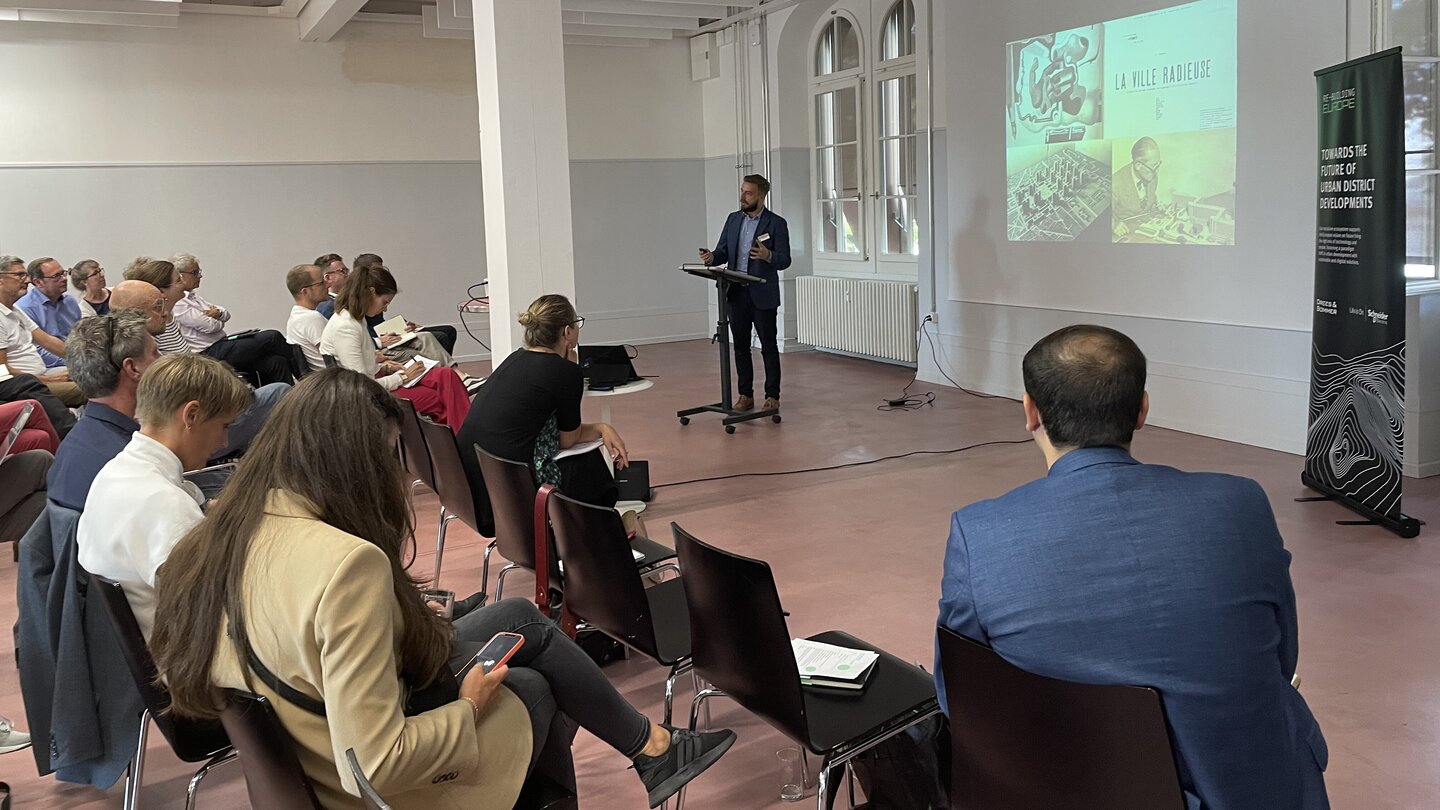
The second impulse by Haris Piplas dealt with the international context of Basel a city between three countries and focus on the IBA. The IBA is an International Building Exhibition that took place in the trinational agglomeration of Basel from 2010 to 2021. The aim is to find solutions for the sustainable and integrated development of a freely accessible space divided by territorial, political and cultural borders. At the participating project sites, new neighbourhoods were to be created that would open up new and further possibilities of doing business and living together for the inhabitants of the trinational agglomeration. Another core issue was the post-IBA territorial vision.
Panel Discussion
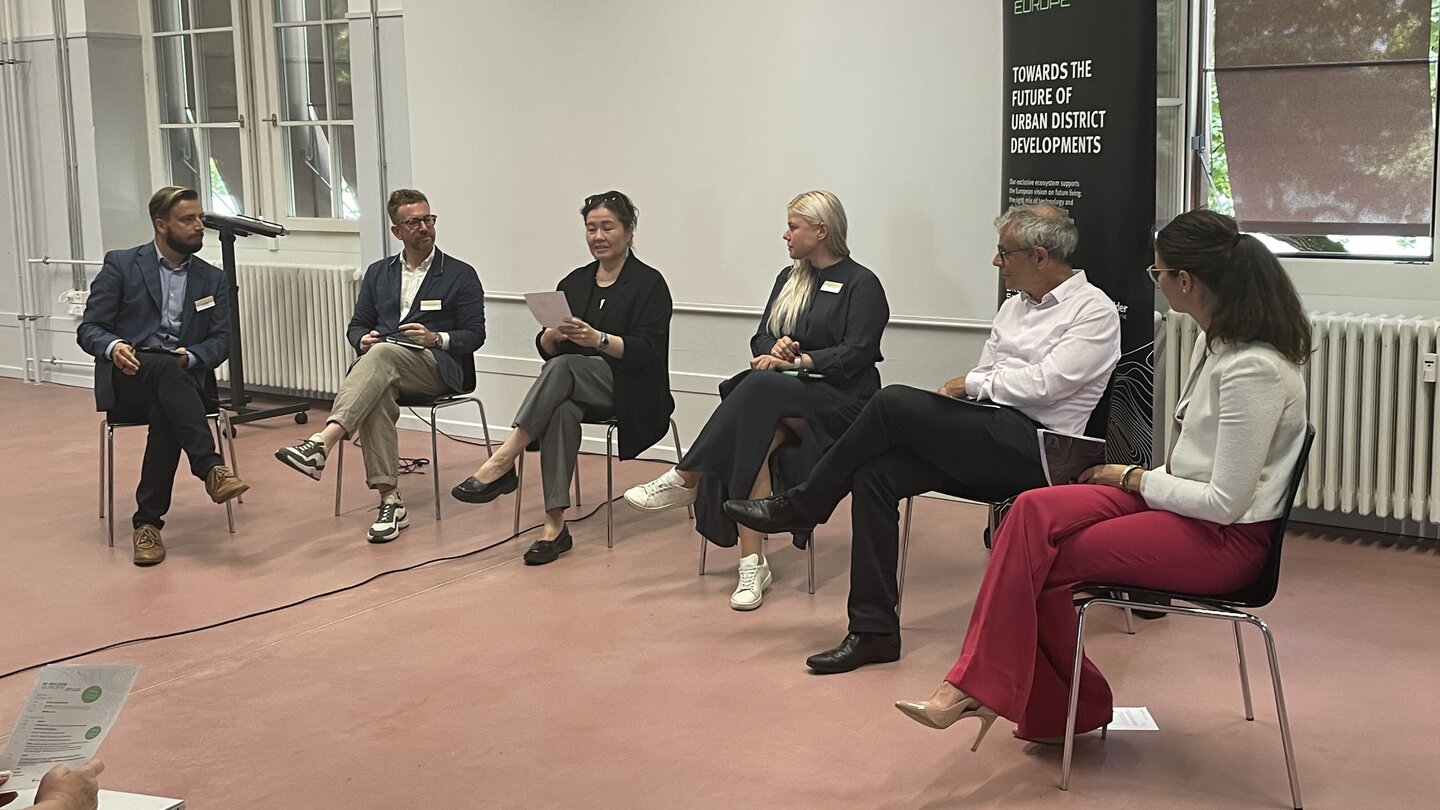
Laurent Goetschel, Director of swisspeace and professor of political science at the University of Basel, Saule Ospanova, Senior Environmental Advisor at the OSCE, Lidiia Chyzhevska, National Union of Architects at the Ukraine, Jaime Font Furest, Director International Architecture Programs School of Architecture at the La Salle University participated in the panel discussion. The discussion was about about the lesson of Barcelona and the cooperation with Busan, Korea and Fortaleza. Whereas Barcelona, as a major player that does not own the land but the law, needs a critical and contextualised urban knowledge transfer. Which raised the question of whether Barcelona should be considered as a model of good practice.
The need for a pan-European urban knowledge toolbox based on the Re-building Europe ecosystem, containing critical knowledge that can be used for contextualised impact, with a value and narrative based approach was also discussed. It was further noted about the need for financial support to the already existing re-building efforts of 7000 Ukrainian architects who have become unemployed (including re-building plans and programmes). Whereby the National Union of Architects at the Ukraine have the knowledge and skills to rebuild Ukraine (Union of Ukrainian Architects). There was also discussion about the importance of urban regeneration case studies that symbolise the involvement of the community, creative industries, academia and new economies, such as kHaus. In particular, it emerged that trust and community engagement is a prerequisite.
CO-CREATIVE WORKSHOP I: SOCIAL + ECONOMIC CHALLENGES AND SOLUTIONS
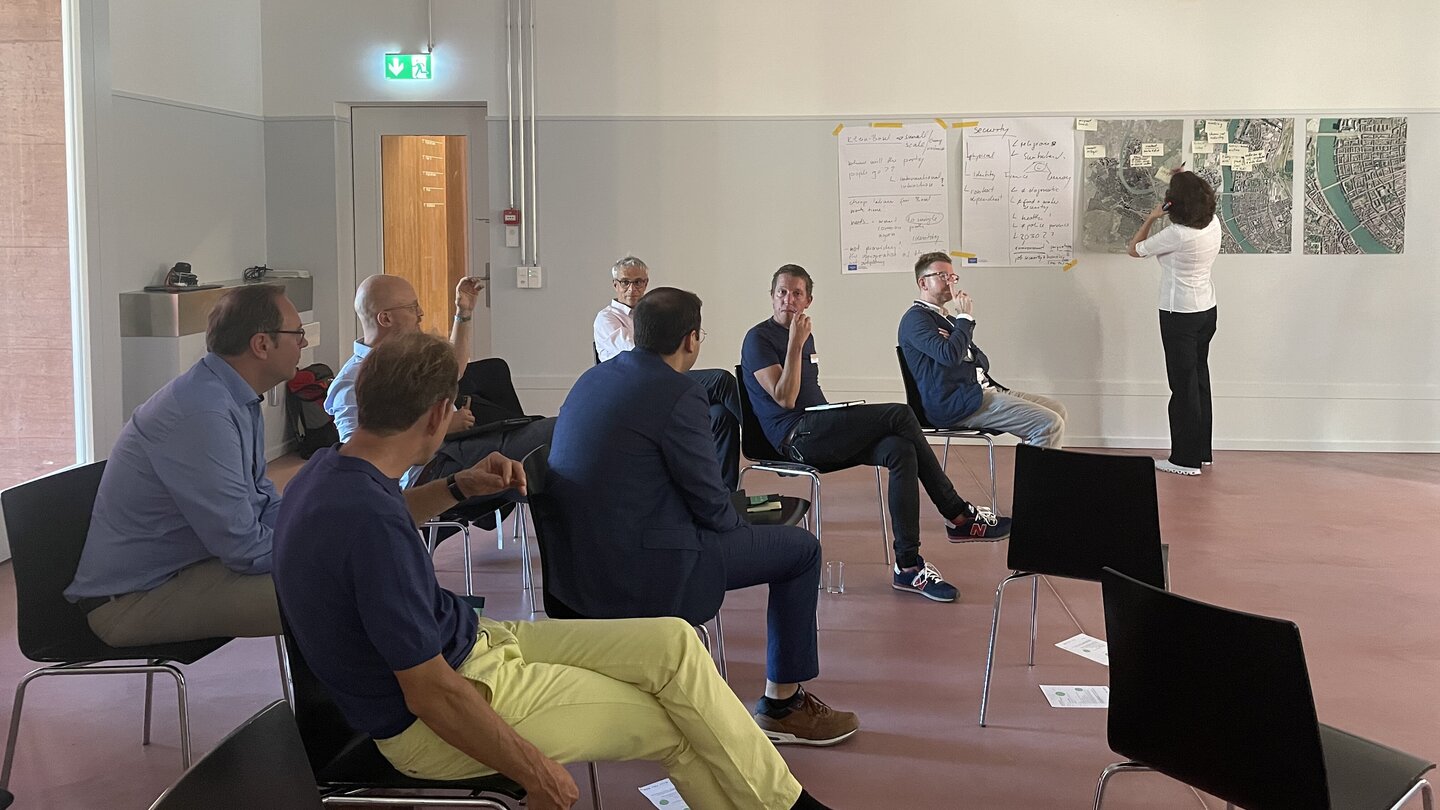
Laurent Goetschel (Director of swisspeace and professor of political science at the University of Basel at swisspeace) and Dr. Christiane Gebhardt (Director Integrated Urban Solutions at Drees & Sommer) moderated the first workshop and focusing on the following questions:
- Which values and needs are important for Basel as a "peace and secure city" and a meeting place for the three nations to shape international and cross-border urban policy paradigm?
- What are the challenges in enhancing social inclusivity in a common perspective with the economic and ecologic sustainability and avoiding conflicts of uses in the industrial and harbour area?
- How can urbanism at the metropolitan scale become a cross-border act and connect the three countries through a public space network?
Summary
- Urban morphology is different in the trinational context e.g. villages and rural lifestyle in the French part, as well as several German territories. A strong industrialization patterns is foreseen in the future, in order to keep up with the wealthy of the rest of the metropolitan area such as Basel.
- An increase of cross-border retail expected due to the weakening if the EUR currency which will increase mobility and infrastructural pressure
- Basel as an international expat hub that needs to preserve its local identity and history
- Transportation hubs for tourists on the border that come to recreation and tourisms to Switzerland, P&R opportunities lacking
- Local and everyday recreation is a cross-border fact. Mixed-used zones at the border could release the visitors´ pressure to the inner city
- Security and police presence at the youth hotspots at the Dreiländereck
- Food and water security needs to be thought on the metropolitan scale incl. (sub)urban agriculture and ecosystem services (water, energy etc.)
- International interaction (also among youth) is an important social act but the potential future development and formalization may slow down the social interactions. It is important not to overplan and overdesign but allow the appropriation of the place.
- Mobility and commute increase due to different price ranges of kindergartens in the metropolitan area, reducing time for other activities
- Trinational region should become a more practical and infrastructural dimension rather than symbolic and metaphoric, still there is a lack of a common vision
- Trinational living is complicated due to law and taxes
- Ecosystem (infrastructure, living, housing) should be preserved, as well as protected in the future
CO-CREATIVE WORKSHOP II: ENVIRONMENTAL + ECONOMIC CHALLENGES AND SOLUTIONS
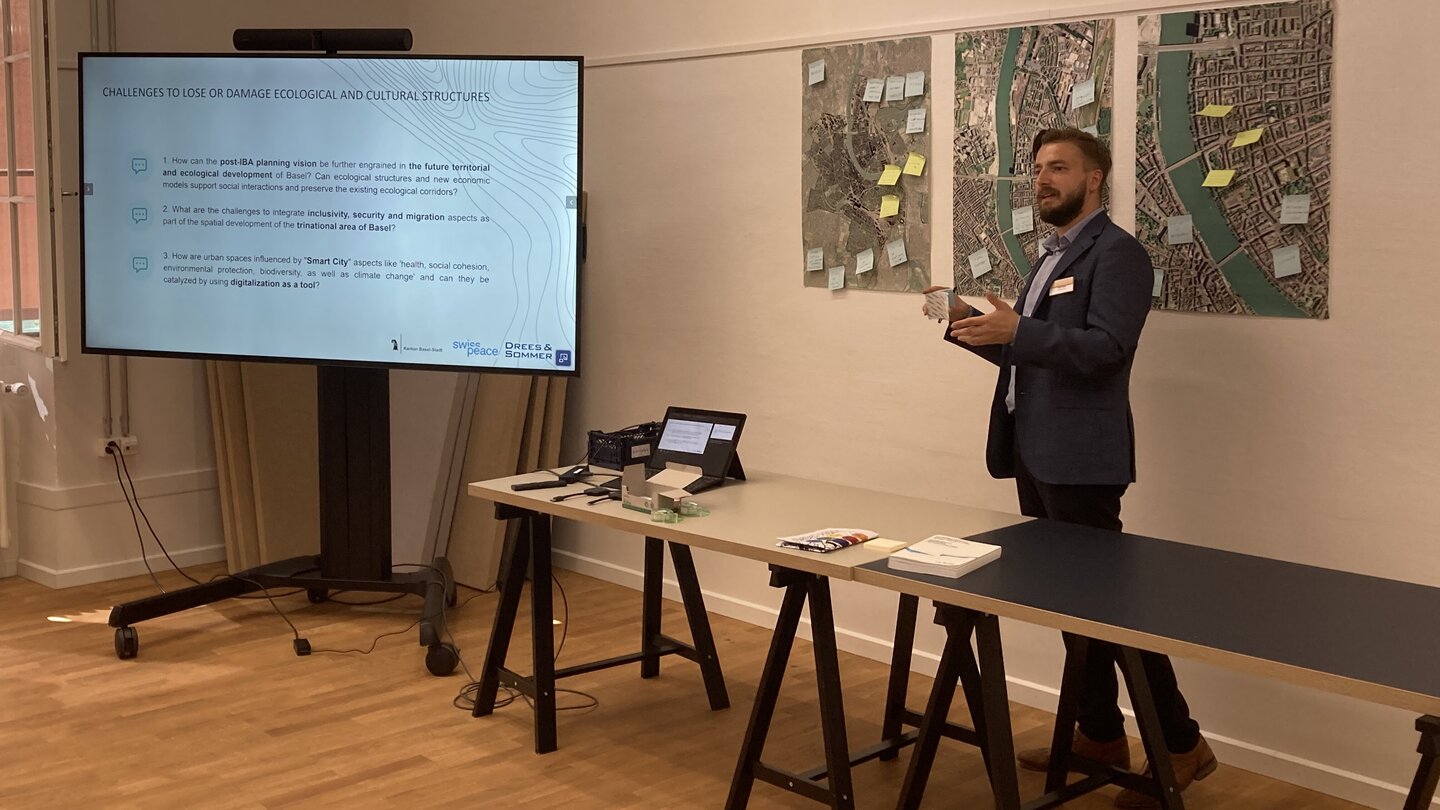
Lukas Ott (Head of Urban Development Basel at Canton Basel-City) and Dr. Haris Piplas ( Co-director Integrated Urban Solutions at Drees & Sommer) moderated the second workshop and focusing on the following questions:
- How can the post-IBA planning vision be further engrained in the future territorial and ecological development of Basel? Can ecological structures and new economic models support social interactions and preserve the existing ecological corridors?
- What are the challenges to integrate inclusivity, security and migration aspects as part of the spatial development of the trinational area of Basel?
- How are urban spaces influenced by "Smart City" aspects like 'health, social cohesion, environmental protection, biodiversity, as well as climate change' and can they be catalyzed by using digitalization as a tool?
Summary
- Airport noise reduction as a regional challenge
- Decentralized energy production and use could support the solutions to the upcoming energy crisis
- Besides ecological corridors the ´traditional´ hard infrastructures such as transport, logistics and airport need to be considered in region planning
- Localize food productive and flows and coordinate in the trinational area
- Flexible infrastructure planning rather than masterplans
- Patent law was the prerequisite to attract companies but now the workforce needs to be though in a trinational scale
- Circularity needs to be upscaled to the regional scale including social innovation, ecosystem services and new economic models (e.g. Südtirol, Vorarlberg)
- Bringing people not only in planning process but also in the design process; Engage citizens in the implementation of the project
- Number of forests are low and the remaining ones need to be preserved in terms of climate resilience
According to our one-company approach, the Business Transformation & Network Management team (Ramona Schmid, Götz Schönfeld and RebeccaMoser), D&S Integrated Urban Solution (Dr. Christiane Gebhardt, Dr. Haris Piplas, Karolina Skowronek, Antje Eulenberger) and Drees & Sommer Basel office (Florian Schrenk) as well as our partner Canton Basel-City (LukasOtt) and swisspeace (LaurentGoetschel) jointly contributed to the successful implementation.
We are now looking forward to our next workshop in Oslo 28th of October, supported by Swiss Life Asset Managers.
In collaboration with Drees & Sommer International, we are organizing the final forum on 30th of November in London to present the results of our workshops and discuss the future development of neighborhoods.
GET In TOUCH
